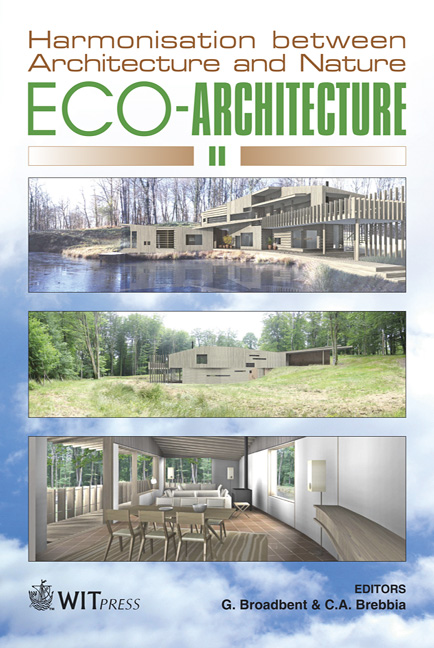Hands-on Learning: The EcoMOD Project
Price
Free (open access)
Transaction
Volume
113
Pages
9
Page Range
171 - 179
Published
2008
Size
2447 kb
Paper DOI
10.2495/ARC080171
Copyright
WIT Press
Author(s)
J. D. Quale
Abstract
ecoMOD is a research and design/build/evaluate project at the University of Virginia that aims to create a series of ecological, modular and affordable housing units. The project is a partnership of the UVA School of Architecture and the UVA School of Engineering and Applied Science. The goal of the project is to provide a valuable educational experience, while demonstrating the environmental and economic potential of prefabrication – challenging the housing industry in the U.S. to explore this potential. It is a hands-on educational initiative for students and faculty to work together to address the issues of environmental sustainability and social justice. When addressing these increasingly important topics, the case for a ‘real world’ project, compared with traditional classroom learning, is clear: the next generation of building industry professionals are best served by projects that involve ‘real buildings’ with ‘real budgets’ because these are the situations they will face as professionals. By offering advanced students an opportunity to test drive their design ideas, and collaborate with other emerging professionals, these students can benefit from the supportive feedback loop of academia, and more carefully hone their critical thinking skills. Keywords: sustainable design, design–build, affordable housing, prefabrication, architectural education, engineering education, interdisciplinary collaboration, critical thinking. 1 Introduction In establishing ecoMOD, the intent was to create a project that would be grounded by the realities of budgets and materials, while striving to address the two most important challenges facing the next generation of designers: the significant environmental impact of the buildings, and the growing economic divide between high-income and low-income individuals. In the context of this
Keywords
sustainable design, design–build, affordable housing, prefabrication,architectural education, engineering education, interdisciplinary collaboration,critical thinking.





